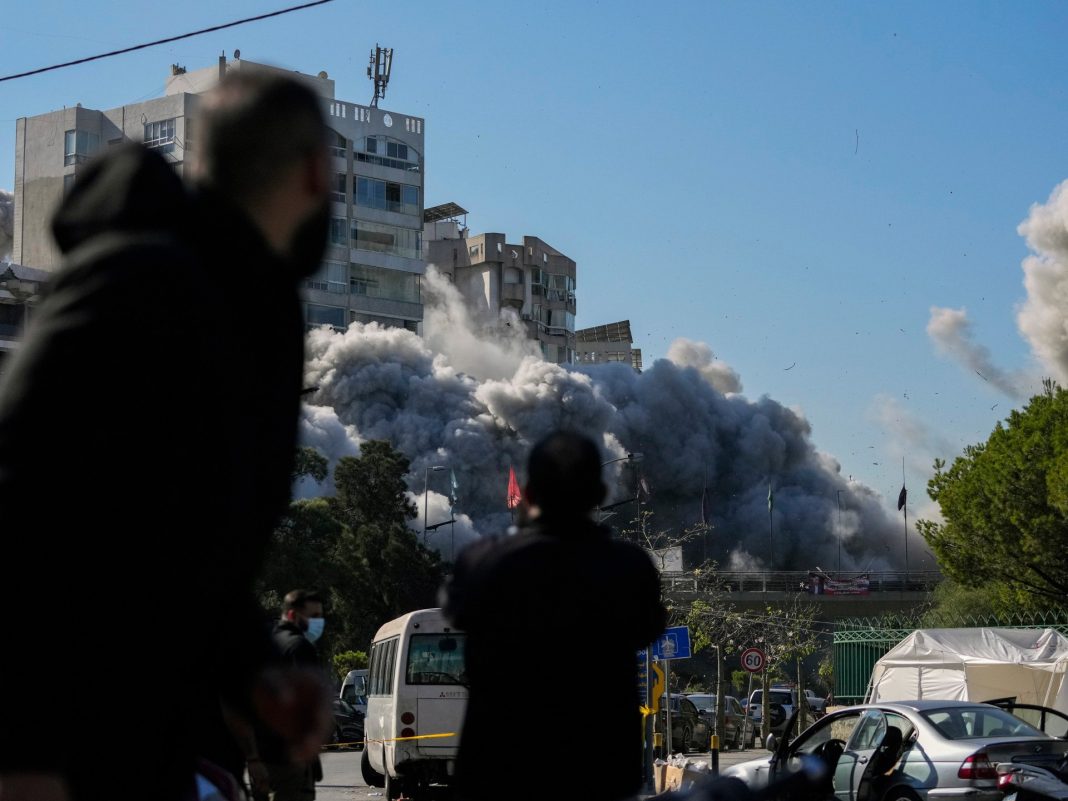Israeli air strikes flattened five buildings in the Lebanese capital’s southern suburbs on Friday.
Israel’s military escalated its attacks on Lebanon in late September after almost a year of cross-border hostilities with the Lebanese armed group Hezbollah in parallel with the Gaza war.
Israel’s attacks on Lebanon have forced more than one million Lebanese to flee their homes, igniting a humanitarian crisis.
It has dealt Hezbollah serious blows, killing its leader Seyyed Hassan Nasrallah and other commanders. Hezbollah has kept up rocket attacks into Israel and its fighters have been battling Israeli soldiers in the south.
Diplomacy attempting to reach a ceasefire has shown tentative signs of progress this week.
The Reuters news agency reported on Thursday that the US ambassador to Lebanon had presented a draft ceasefire proposal to Lebanon’s parliament speaker Nabih Berri, citing two senior political sources.
The AFP news agency reported that senior Lebanese officials are reviewing the US proposal.
A senior Iranian official said on Friday that Iran would back any decision made by Lebanon in truce talks, signalling Tehran wants to see an end to the conflict.
Asked at a news conference whether he had come to Beirut to undermine the US truce plan, Ali Larijani, a senior advisor to Iran’s leader Ayatollah Seyyed Ali Khamenei, said, “We are not looking to sabotage anything. We are after a solution to the problems.”
“We support in all circumstances the Lebanese government. Those who are disrupting are Netanyahu and his people,” Larijani added, referring to Israeli Prime Minister Benjamin Netanyahu.
World powers have announced a Lebanon ceasefire must be based on United Nations Security Council Resolution 1701, which ended a previous 2006 war between Hezbollah and Israel. Its terms require Hezbollah to move weapons and fighters north of the Litani River, which runs some 20km (30 miles) north of the border.
Israel has demanded the freedom to attack, should Hezbollah violate any agreement – a demand that Lebanon has rejected.
Nearly 3,400 people have been killed and 14,500 wounded in Israeli attacks on Lebanon since October 2023.
